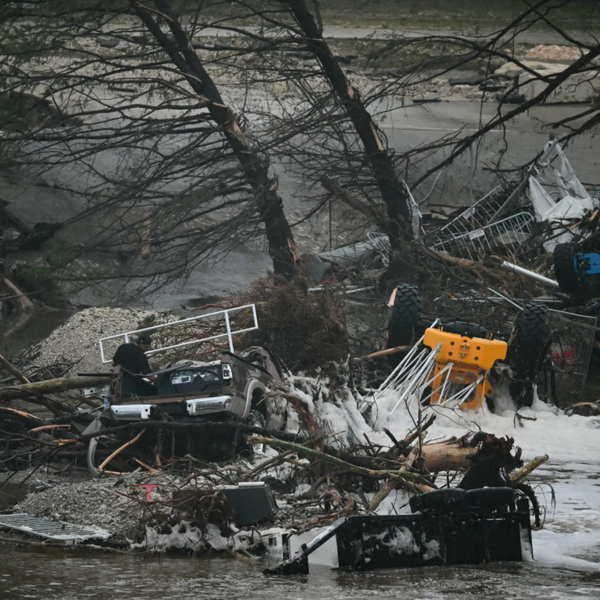New York City (AFP) – A Libyan Al-Qaeda suspect Tuesday pleaded not guilty in a New York court to conspiracy charges over the 1998 U.S. embassy bombings in East Africa that killed 244 people.
Anas al-Libi was snatched from the streets of the Libyan capital Tripoli by U.S. commandos on October 5 and at the weekend was brought to New York, where he was indicted by a grand jury in 2000.
The 49-year-old was arraigned in New York Southern District courtroom 24A wearing a black sweater, grey jogging pants and socks and flip flops on his feet.
He sported a bushy grey beard and closely cropped black hair, and appeared tired during the less than 15-minute hearing held under stringent security measures.
Judge Lewis Kaplan read out a list of charges him that accuse Libi of conspiring to murder, kidnap, maim, kill, destroy property and attack U.S. defense buildings.
The charges do not carry the death penalty.
Libi spoke in a gravelly voice only to confirm his name and age, and that he understood the proceedings.
He spoke in Arabic and said he did not understand English, so was given simultaneous translation through a headset by an interpreter.
The prosecution said Libi, whose given name is Nazih Abdul Hamed al-Raghie, was a clear danger to the public and a flight risk with no family in the United States.
The judge ordered him detained and adjourned the next hearing until October 22.
The August 7, 1998 car bombing of the U.S. embassy in Nairobi killed 213 people and wounded another 5,000.
A near simultaneous truck bomb outside the U.S. mission in Tanzania killed 11 people and wounded 70 more.
The computer expert had been on the FBI’s most wanted list with a $5 million price on his head.
Prior to arriving in New York, he was interrogated on the USS San Antonio, a U.S. amphibious transport ship that had been operating off Libya in the Mediterranean.
But television network CBS said his questioning was cut short after he started to refuse food and water.
CBS said Libi suffers from hepatitis.
The 2000 indictment of him and 20 more alleged Al-Qaeda militants lists him in direct connection to the U.S. embassy bombing in Kenya.
But only three paragraphs of the 150-page document relate directly to Libi.
It accuses him in 1993 of discussing possible attacks against the U.S. embassy in Nairobi, and of carrying out surveillance of the diplomatic mission.
In or around 1994, it says, he received files concerning possible attacks against the embassy, the US Agency for International Development, and British, French and Israeli targets in Nairobi.
President Barack Obama alleged last week that Libi “planned and helped to execute a plot that killed hundreds of people, a whole lot of Americans.”
“We have strong evidence of that. And he will be brought to justice,” Obama added.
Libi’s capture embarrassed Libya and put it under pressure from its critics, notably former rebel groups from the 2011 revolt that ousted leader Moamer Kadhafi.
Washington has refused to say whether it sought permission from Libya’s government for the operation, or whether it gave advance notice of the raid.
But the U.S. government insists it was legal under U.S. law.
Born in Tripoli, Libi belonged in 1990 to the Islamist Libyan Islamic Fighting Group which tried to topple the Kadhafi regime and establish an Islamic state.
After a Libyan crackdown, Libi fled to Sudan, joining Al-Qaeda, where he climbed the ranks because of his IT expertise.
He traveled to Afghanistan and Yemen before being granted political asylum in Britain.
When he was indicted in the United States he fled again, finding shelter in Afghanistan and Pakistan.
He is believed to have returned to Libya at the beginning of the uprising against Kadhafi, battling alongside rebels seeking to topple the dictator.
One of his sons was killed by Kadhafi loyalists during the battle for Tripoli in October 2011, according to a source close to Libi.
When he was captured by the Americans, he did not have a job and had left his house to go to the mosque.








